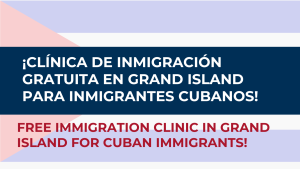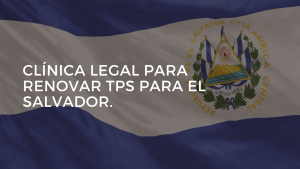Public Charge” Considerations
As we anticipate a SCOTUS Decision regarding Deferred Action for Childhood Arrivals (“DACA”), ILC has received questions regarding family-based immigration options that may be available to DACA Recipients. Applicants for Lawful Permanent Resident (LPR) status through a family-based petition must demonstrate that they are not “likely to become a public charge,” that is, that they have sufficient income, skills, and/or assets that they are unlikely to depend on certain means-tested public benefits. For applicants who must leave the U.S. and attend an interview at the U.S. consulate in their country of origin, the consular officer will make a public charge determination at the time of the interview. If the officer concludes that the applicant is likely to become a public charge, they will be barred from returning to the U.S.; there is no waiver available for this bar. This document provides a brief summary of the factors immigration officials consider in applying the public charge test and suggests ways to strengthen one’s application with respect to public charge factors.
Age, Education, and Employment: Being of an employable age (18-61) and proficient in English are considered positive factors. A high school diploma or GED, higher education, license or certificates in trades or skills, and a valid tentative job offer are also viewed as positive factors. Employment history and current employment are important positive factors for applicants who are work authorized, unless the applicant is the primary caregiver for a child or another household member. Obtaining additional education and/or employment will help strengthen the application.
Health and Health Insurance: Having a medical condition that is likely to require extensive treatment or interfere with the applicant’s ability to work or provide for him or herself is a negative factor, unless the applicant can demonstrate sufficient household income and assets to pay for reasonably foreseeable medical costs. Regardless of whether such a medical condition exists, lacking health insurance is a negative factor. Obtaining health insurance—particularly employer-provided, private, or unsubsidized marketplace insurance—will help strengthen the application.
Household Income and Assets: Where the applicant’s household income is at least 125% of the Federal Poverty Guidelines (FPG) for the household size, this is a positive factor. The “household” generally includes all immediate family members residing with the applicant, and persons who provide at least 50% of the applicant’s support or receive 50% of their support from the applicant. Income must be documented with IRS tax transcripts for the past 3 years. Regular, non-taxable income like child support can be included, as can income earned by household members who lack employment authorization. 125% FPG for a household of 2 is $21,550 a year; $32,750 for a household of 4; and $43,950 for a household of 6. Boosting the applicant’s household income as much as possible will help strengthen the application. Where household income is below 125% FPG, the applicant may be able to make up the shortfall with cash and non-cash assets.
Debt: Applicants who have a credit report must submit it; a credit score of 670 or higher is a positive factor and a score below 580 is a negative factor. Debt is generally a negative factor, including mortgages, unpaid child or spousal support, unpaid taxes, liens, credit card debt, student loans, and care loans. Boosting one’s credit score and paying down debt will help strengthen the application.
Public Benefits: Although DACA Recipients were likely ineligible for many benefits due to immigration status, past receipt of certain means-tested public benefits is considered a negative factor in the public charge analysis. Receipt of SSI, TANF, state cash assistance, institutionalization for long-term care, SNAP, certain housing assistance, and, in some circumstances, Medicaid, are negative factors. However, receiving Medicaid while under age 21, during pregnancy, emergency Medicaid, and certain other Medicaid services, does not count against the applicant. Nor does receipt of disaster relief, national school lunch programs, WIC, CHIP, subsidies for foster care and adoption, government-subsidized student and mortgage loans, energy assistance, food pantries and shelter services, and Head Start.
Note that only public benefits received in the applicant’s own name are considered; in other words, receipt of SNAP or housing assistance for an applicant’s qualifying U.S. citizen children is not itself a negative factor. Disenrolling qualifying family members from public benefits on which they depend will not, alone, strengthen the application for LPR status. However, boosting household income to the point that the family no longer qualifies for means tested benefits can help strengthen the application.
Affidavit of Support: Applicants for LPR status through a family-based petition must submit a form called the I-864, Affidavit of Support. The Affidavit of Support is a contract in which a “sponsor” agrees to be financially responsible for the applicant’s support in the event that he or she cannot support him or herself. Sponsor(s) must be U.S. citizens or LPRs and must demonstrate that they have a household income of at least 125% FPG. It is preferable for the petitioner who filed the family-based petition to act as sponsor, but if the petitioner’s household income does not meet the 125% FPG threshold, another family member or friend may act as “joint sponsor.” Sponsor(s) should be related to or closely acquainted with the applicant—ideally, a household member or close family member—and must be financially self-sufficient themselves. The officer will examine the relationship between the sponsor(s) and the applicant and whether the sponsor(s) are likely to comply with their contractual obligation to support the applicant if necessary.





